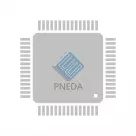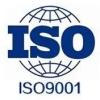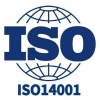The future of Edge AI: Low-power microprocessors powering intelligent applications

In the booming development of artificial intelligence (AI), edge computing is becoming a trend that cannot be ignored. The core idea of edge computing is to move data processing closer to the data source, thereby reducing latency and increasing efficiency. This concept is particularly evident in areas such as the Internet of Things (IoT), smart homes, and intelligent transportation. Low-power microprocessors play a key role in this, enabling edge AI to run efficiently across a wide range of devices.
一、The design concept of low power microprocessor
Low-power microprocessors are designed to improve performance while reducing power consumption. This design allows the device to operate continuously with a low power supply, which is suitable for many scenarios that conventional power sources cannot provide, such as smart wearables, DW-25-20-L-D-800 sensors, and small drones.
The demand for edge AI is mainly reflected in real-time data processing and fast response. Low-power microprocessors provide strong support for edge AI technology by optimizing the architecture, enhancing the speed of data stream processing and improving the efficiency of algorithm execution. Its low power consumption not only extends the service life of the equipment, but also reduces the cooling demand, and is widely used in situations requiring long-term stable operation.
二、The importance of edge AI
The main advantages of edge AI are processing speed and data privacy. Data transmitted to the cloud needs to be transmitted over the network, which may face risks such as delay and insufficient bandwidth. Edge AI can perform data analysis locally and generate feedback in real time, greatly improving efficiency. For example, in autonomous driving, vehicles need to react in milliseconds, and the application of edge computing can ensure this.
In addition, data privacy has also become a focus for users. Edge devices can process sensitive information locally, reducing the possibility of data being transmitted over the network, thereby avoiding potential security risks. Through the use of low-power microprocessors, not only the operating cost of the device is reduced, but the privacy of personal data is also improved.
三、Application scenario analysis
In real life, edge AI technology supported by low-power microprocessors is constantly expanding its application scenarios.
Smart home: Smart home systems collect environmental data through sensors, and low-power microprocessors can quickly analyze these data. For example, the smart thermostat automatically adjusts the system Settings according to the indoor temperature and the user's habits, thus achieving a comfortable living environment and saving energy. Such devices often rely on battery power, and low-power microprocessors ensure they work sustainably over long periods of time.
Industrial automation: The application of edge AI in industrial production is also increasingly extensive. Smart sensors can monitor equipment status in real time and react automatically. The low-power microprocessor is responsible for analyzing the sensor data and timely feedback of abnormal conditions to the field staff to ensure the efficiency and safety of the production line.
◆ Intelligent security: Surveillance cameras and other security equipment use edge AI technology for real-time monitoring and anomaly detection. The low-power microprocessor is critical in this device, which can quickly react when a potential threat is detected and transmit the identification results to the user. Through local processing, the device can quickly and efficiently respond to various security threats.
◆ Medical health: Medical equipment is developing in a more intelligent direction. Monitoring devices in ambulances, wearable health monitors, etc., rely on low-power microprocessors for real-time data collection and analysis. These devices are able to monitor physiological indicators such as heart rate, blood oxygen and body temperature and notify medical personnel immediately if needed.
四、The promotion of technological progress to low-power microprocessors
With the continuous progress of technology, the research and development of low-power microprocessors has made remarkable achievements in algorithms, materials and manufacturing processes. For example, new transistor technologies such as FinFET and GAAFET allow microprocessors to significantly reduce power consumption while maintaining high performance. In addition, the introduction of AI accelerators has made deep learning and machine learning on edge devices more efficient.
Vendors are also pushing to optimize AI algorithms to perform well on low-power microprocessors. For example, the emergence of lightweight frameworks such as TensorFlow Lite and Caffe2 allows developers to implement complex models in resource-constrained environments. These technological advances have undoubtedly laid the foundation for the popularization of edge AI.
Future expectations
Going forward, the combination of edge AI and low-power microprocessors will lead to more intelligent applications. Future devices will place greater emphasis on independence and intelligence, further reducing reliance on cloud computing and traditional servers. With the popularization of 5G networks, edge computing will be more widely used, and the improvement of data transmission speed will make the response time of edge AI closer to real-time.
In the industry, more and more enterprises are realizing the potential of edge AI and incorporating it into product planning. Whether it is consumer electronics, intelligent manufacturing, or healthcare, edge AI has broad prospects.
Continued innovation and development of low-power microprocessors will further drive these applications. By continuously optimizing the interface of hardware and software, edge AI will play an irreplaceable role in many fields in the future.
Die Produkte, an denen Sie interessiert sein könnten
 |
4186 | RED LED ILLUMINATED TRIANGLE PUS | 7596 More on Order |
 |
4187 | BLUE LED ILLUMINATED TRIANGLE PU | 7416 More on Order |
 |
985 | MAXSONAR RANGEFINDER HRLV--EZ4 | 2052 More on Order |
 |
3828 | 5 ETAPE LIQUID LEVEL SENSOR WITH | 5526 More on Order |
 |
464 | 12 ETAPE LIQUID LEVEL SENSOR | 7758 More on Order |
 |
953 | WIRE EL FLOW EFFECT INV PINK 2M | 4662 More on Order |
 |
2477 | ADDRESS LED DISK SERIAL RGB | 8658 More on Order |
 |
2436 | DOTSTAR LED STRIP - ADDRESSABLE | 5184 More on Order |
 |
2433 | DOTSTAR LED STRIP - ADDRESSABLE | 6300 More on Order |
 |
2824 | ADDRESS LED STRIP SERIAL RGBW 5M | 4788 More on Order |
 |
2540 | NEOPIXEL DIGITAL RGB LED STRIP - | 3888 More on Order |
 |
2042 | ADDRESS LED MATRIX I2C GREEN | 7290 More on Order |
 |
1938 | ADDRESS LED DISCRETE SER RGB 5MM | 512 More on Order |
 |
2858 | ADDRESS LED MODULE SERIAL RGBW | 8190 More on Order |
 |
1268 | ADDRESS LED 7 SEG I2C GREEN | 7326 More on Order |
 |
3634 | ADDRESS LED STRIP 1M | 5220 More on Order |
 |
2861 | ADDRESS LED RING SERIAL RGBW | 6822 More on Order |
 |
2574 | ADDRESS LED STRIP SERIAL RGB 1M | 7146 More on Order |
 |
3867 | FLEXIBLE SILICONE NEON-LIKE LED | 6678 More on Order |
 |
1303 | DISPLAY PIXEL QI 1024X600 3MODE | 8010 More on Order |
 |
2675 | MONOCHROME 2.3 128X32 OLED GRAPH | 8730 More on Order |
 |
2396 | 7"" TFT DISPLAY 1024 X 600 | 8172 More on Order |
 |
1818 | LED MATRIX 8X8 SQUARE AMBER | 4608 More on Order |
 |
865 | RED 7-SEGMENT CLOCK DISPLAY | 8262 More on Order |









